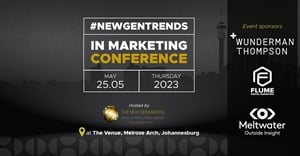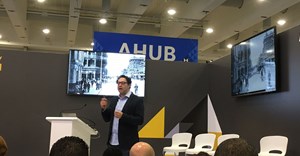
Subscribe & Follow
Jobs
- Social Media Specialist Johannesburg
- Advertising Specialist - Get It Magazine Durban Durban
- Advertising Sales Executive Sandton
- Art Director Sandton
- Senior Working Art Director / Designer Johannesburg
- Senior Account Manager Cape Town, Johannesburg
- Junior Account Manager Cape Town, Johannesburg
- Copywriter Cape Town
- Ad Traffic Intern Cape Town
- Director of Creative Performance Cape Town
Traditional advertising heads for ‘obsolescence'
Whether you can see the social revolution happening or not, it's being driven by social networking and software development, says Shapshak. There's a form of software socialism happening with the Creative Commons license and open source software.
“When you post content on Google or YouTube or Facebook, it's no longer yours. It belongs to Google and they sell advertising against it. Then… Open Office is ready – so why spend thousands of dollars on Microsoft licenses when you can get it free?” asks Shapshak.
“Web 2.0 allows you to interact with websites like you would do with a normal computer – we've seen this with social networking sites… Blogs have changed publishing on the web… you have Google's news aggregator (no humans, all software robot aggregators). There's a whole new language out there.”
The broadband key
And for those South Africans who can't see it happening here, well, you're right. For now. As soon as we get real broadband internet access the online world will explode and we had better be ready.
Explains Shapshak: “The world is evolving into knowledge workers who make sense of information.”
Take ‘social not-working' as he explains it, where your friends online on not real friends and parents try and encourage their kids to interact with real kids in real time.
“There's a paradigm shift in what human interaction is… and that's a challenge for parents. “ He tells how Japanese kids use their thumbs for so much messaging and playing games that their thumbs are replacing their index fingers for pointing and pressing doorbells, etc, things one would normally use an index finger for.
The next big thing?
Shapshak's next big things? He predicts:
- Video everywhere, newspapers are going to send multimedia journalists out as well as journalists and photographers on a story.
- Facebook is going to be the new platform for networking.
- Google can run your world if you want it: blogs, phone, documents, get news, maps etc. Going to change the way we're working.
- One day soon we will have broadband everywhere. Wimax 30km range for broadband coming.
- VOIP totally changing voice as a medium – now a commodity.
- Mobile Internet: Wimax will enable broadband speeds. Nokia 95 has same power and specs as an entry level computer five years ago.
- TV on mobile phones and HD TV to South Africa next year.
- More and more 3D life online a la Second Life.
- World of warcraft – massively multiplayer online game – 15 million users. It's a new form of online entertainment that should be even more worrying to cinema. Online entertainment going the same way.
- More iPods.
“We are in a digital kindergarten,” Shapshak warns. And the message here for ad agencies and all media is that people are not consuming traditional media in the way that we have in the past. Everything is changing and advertisers will have to look at these new consumption habits of news, information and entertainment and figure out how to reach their consumers through these new channels.
Best we start our education yesterday.
• Flux offered an “edited version” of the excess of information daily, for a digestible snapshot of current and future trends, sharing insight and analysis across the political, economic, social and media landscape for both business and consumer audiences. The brainchild of ‘trends observer' Dion Chang, this was the first year of this project which he hopes to grow into a bi-annual event. Chang explains: “We are bombarded by excessive amounts of information every day. But we don't always have time to take in all that we are exposed to. Our natural reaction is to block out a lot of it. But because information is increasingly interconnected, we risk omitting data that is both relevant and beneficial.”

















